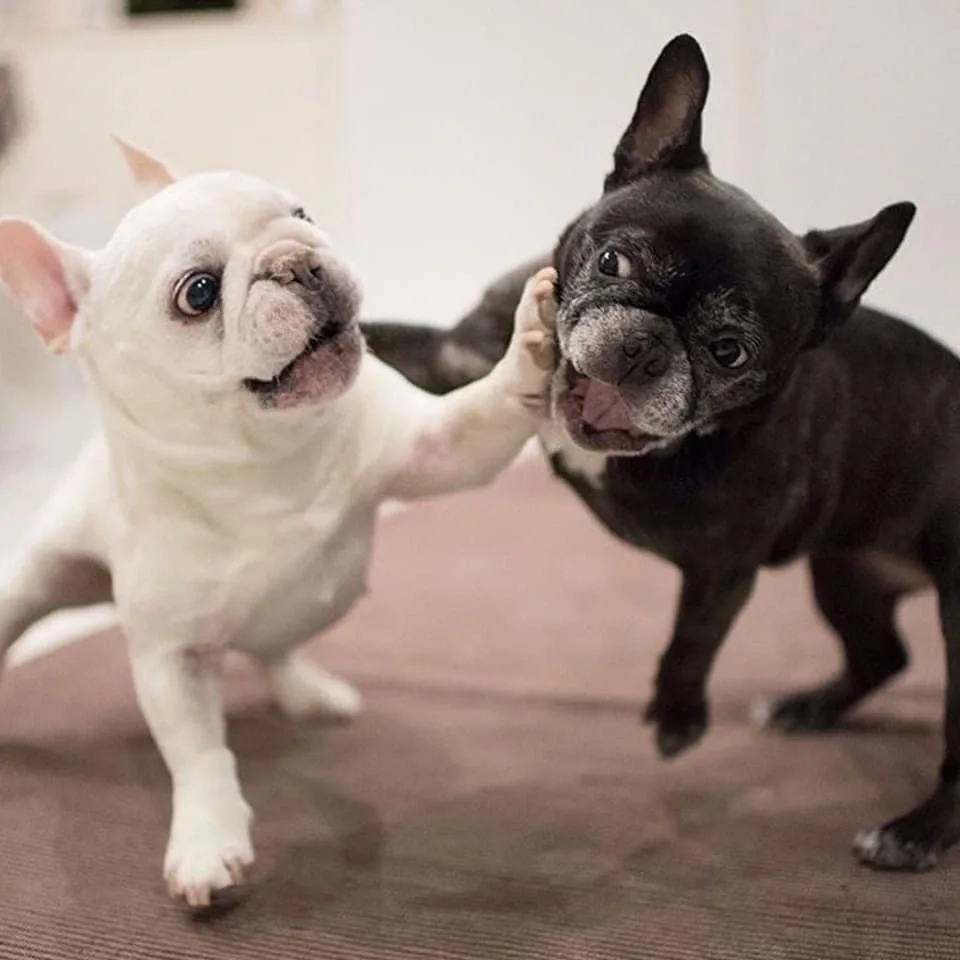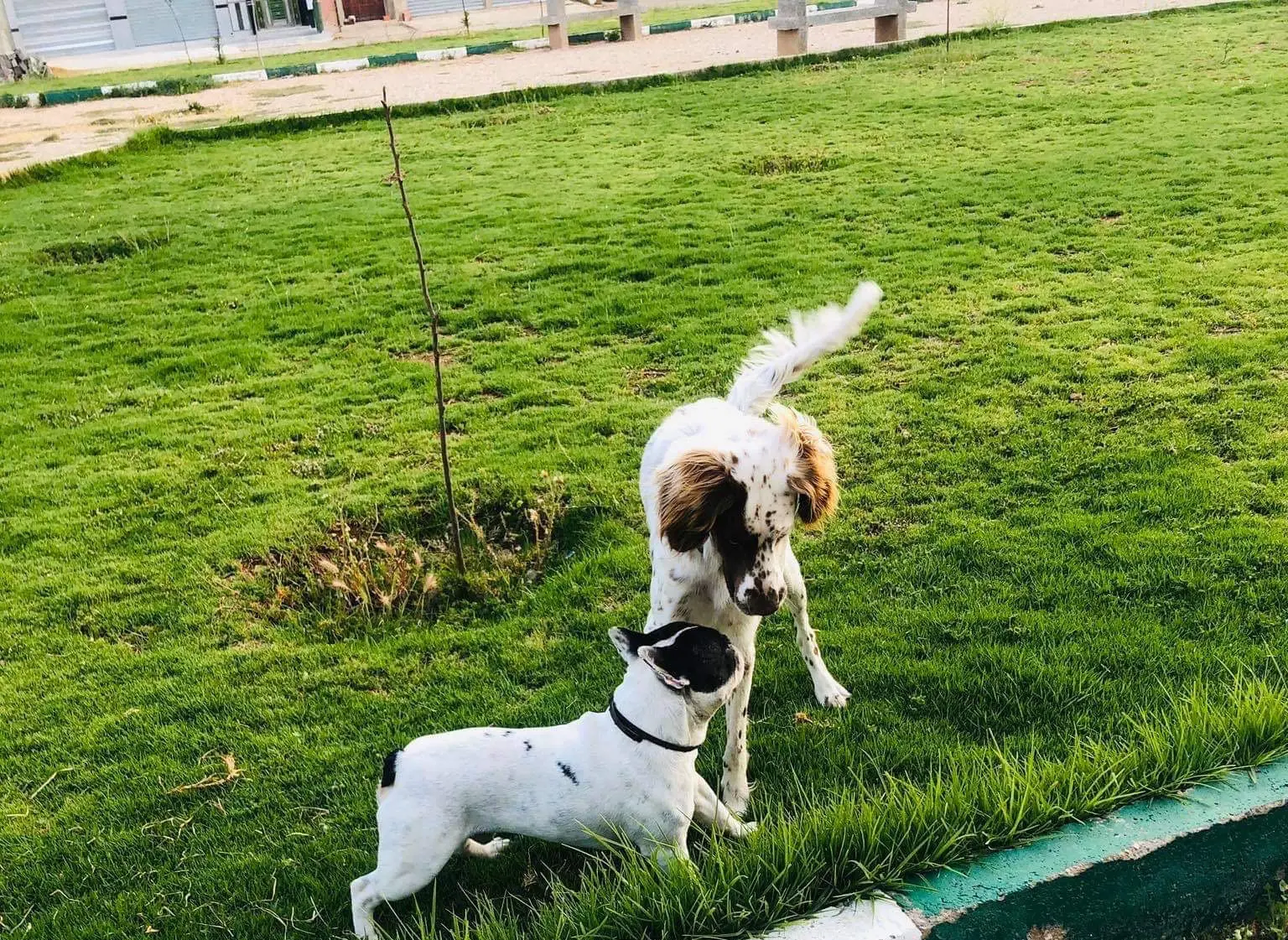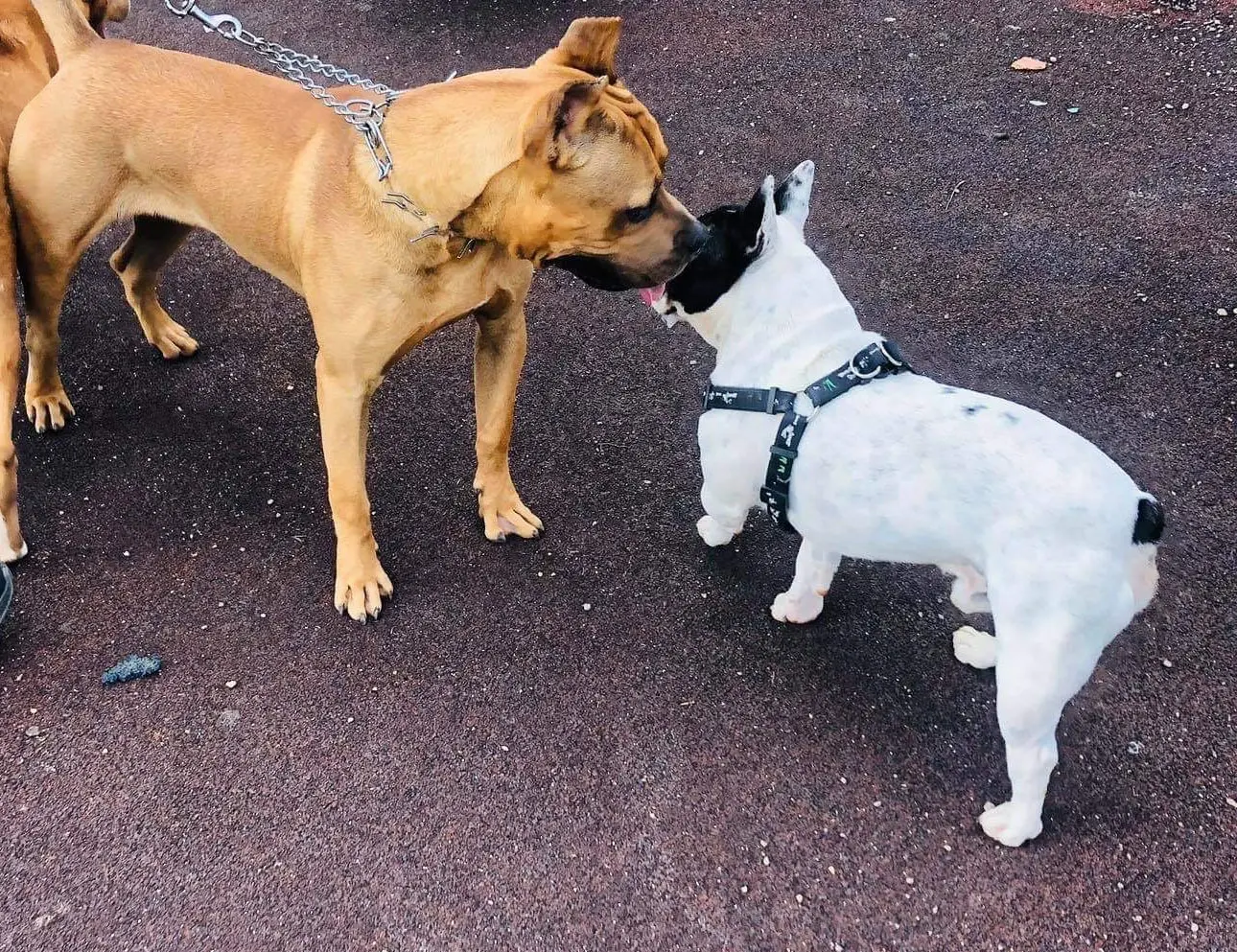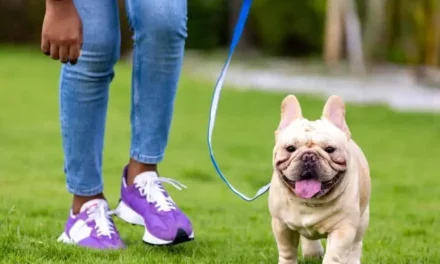Are Frenchies get along with other dogs?

Many individuals contemplating the addition of a French Bulldog to their family often inquire about their compatibility with other dogs.
This concern holds significance for those already owning dogs, having family or friends with canine companions, or considering a companion for their existing Frenchie.
I aim to share our firsthand experiences with French Bulldogs, providing insights into their interactions with other dogs. This will encompass observations of our own Frenchie engaging in play, as well as witnessing other Frenchies in similar situations. Let’s delve into our experiences…
Are French Bulldogs sociable with other dogs?
As a general rule, French Bulldogs exhibit excellent compatibility with other canines. Renowned for their affectionate, playful, and confident nature, this breed tends to display minimal aggression. In most cases, French Bulldogs harmoniously coexist with other dogs.
Understanding the French Bulldog Breed

Temperament and Adaptability
French Bulldogs generally possess an adaptable and easygoing temperament.
Their moderate exercise needs render them suitable for apartment living.
Their well-mannered and peaceful demeanor makes them an ideal choice for families with young children.
Nonetheless, their susceptibility to separation anxiety emphasizes the importance of ample attention and mental stimulation.
Distinctive Behavioral Traits
French Bulldogs exhibit unique and endearing quirks in their behavior, such as their characteristic snorting, snoring, and occasional flatulence.
Their playful nature often veers into mischievous antics, and they may indulge in chewing.
Providing an array of chew toys helps curb this behavior. Their inherent stubbornness can pose a challenge during training sessions.
Male vs. Female French Bulldogs
While both genders of French Bulldogs share similar personalities and temperaments, notable differences exist.
Males might display more dominance and territorial tendencies, whereas females may exhibit a nurturing and affectionate disposition.
Male Frenchies are inclined towards marking their territory, potentially necessitating more focused training.
The choice between a male or female Frenchie should align with personal preferences and lifestyle.

IDENTIFYING AGGRESSION IN FRENCH BULLDOGS
The spectrum of aggression in French Bulldogs encompasses various behaviors, such as territoriality, dominance assertion, shyness, anxiety, self-preservation, curiosity, and fear.
These behaviors manifest differently based on the root cause of the aggression.
In very young puppies, behaviors like biting, growling, or snarling might not signify aggression as they’re often normal. However, if these behaviors persist into adulthood, it might indicate a potentially aggressive disposition in your French Bulldog.

When fear triggers aggression in your Frenchie, their initial response might involve hiding or attempting to flee before displaying aggressive behavior.
Avoidance of physical or eye contact might signal fear, shyness, or anxiety, which is atypical for a French Bulldog.
Identifying and addressing the underlying cause promptly is essential.
If you’re uncertain about the source of aggression, seeking advice from your vet for a recommendation regarding a local dog trainer or behaviorist is advisable.
Continuous attempts to seek attention or displaying discomfort when interacting with other pets, like growling, pacing, or snarling, could indicate aggressive tendencies in your French Bulldog. It’s crucial not to reinforce this behavior; establishing authority is essential. Severe aggression warrants immediate behavioral training.
SOCIALIZING A FRENCH BULLDOG PUPPY
Handle puppies with care, particularly before they complete their vaccinations. While exposing them to new environments is beneficial, avoid overwhelming their senses.
Socialization involves introducing your Frenchie to a variety of stimuli to prepare them for future experiences. Familiarizing them with diverse settings as puppies helps minimize fear responses during adulthood.
Exposing your Frenchie to other animals, people of various backgrounds, transportation systems, and diverse environments aids in their socialization process. This exposure helps in reducing fear and promotes adaptability as they grow.
METHODS TO INTRODUCE FRENCH BULLDOG TO OTHER DOGS


Which Dog Breeds get along with French Bulldogs?
Let’s delve into the practical aspect: which dog breeds do French Bulldogs generally get along with? Firstly, I’ll outline the dogs that our Frenchie, Claude, readily interacts with at our local park—the potential ideal companions for your Frenchie.
Dog Breeds that Harmonize with Our Frenchie:
- Beagles
- Boston Terriers (note the differences versus Frenchies)
- English Sheepdogs
- English Springer Spaniels
- Cockapoos
- Lurchers

Dog Breeds that Struggle to Get Along with Our Frenchie:
Conversely, some dog breeds haven’t quite hit it off with our French Bulldog, and notably, this animosity stems unilaterally from the other dog:
- Border Collies (tendency to nip at our Frenchie)
- Staffordshire Bull Terriers (exhibitgrowling behavior towards our Frenchie)
- West Highland White Terriers (often bark at our Frenchie)
The breeds that don’t quite mesh well with Frenchies might find our breed’s playful and clownish nature somewhat bothersome. For instance, breeds like Border Collies, bred for herding, might attempt to herd an exuberant Frenchie, leading to nipping behavior.
French bulldogs and cats

Beliefs of other French Bulldog Owners
Mine is fine with other dogs when off leash. On leash he can be an idiot sometimes. When I walk him around the neighbour hood & he sees other dogs he pulls & wants to approach them but if we’re at an off leash park he generally ignores them or gives them a quick sniff & is on his way. Both my neighbours have dogs & when out in the yard they don’t bother each other or bark but they’ll all bark at people walking by. My sister has a Shiatzu, Rottweiler, Australian Shepherd & a Doodle of some kind & they all get along fine when together. That being said all of the dogs have been well socialized with people & other animals from pups.
My experience is that our frenchies love other dogs, but not all other dogs love frenchies. Particularly difficult for us are larger dogs like German shepherds and so on. We’ve had several experience (also with border collie which was poorly trained) where the dog tried to chase our frenchies as pray. It was terrifying.
I’d say introduce them off leash and monitor them while they’re interacting. Fence aggression isn’t necessarily going to translate into general aggression, but since it’s a puppy coming into your dogs space your dog might be cranky about it. I’d highly recommend taking your dog to some dog parks for neutral ground interactions with other dogs. Most frenchies are very social when given the chance! 🙂

FAQs about French Bulldogs and Their Interaction with Other Dogs
Are French Bulldogs generally good with other dogs?
French Bulldogs often exhibit friendliness and can get along well with various dog breeds, especially when properly socialized. However, individual personalities and early socialization play a significant role in their interactions.
How important is early socialization for French Bulldogs regarding other dogs?
Early socialization is crucial for French Bulldogs to develop positive behaviors and interactions with other dogs. It helps them become more comfortable and adaptable when meeting new canine companions.
Do French Bulldogs tend to display aggression towards other dogs?
While French Bulldogs typically have an amiable disposition, some instances of aggression may occur due to various factors such as fear, territoriality, or lack of proper socialization. Addressing the root cause and early training can often mitigate these behaviors.
Can French Bulldogs coexist peacefully with other pets besides dogs?
With proper introductions and socialization, French Bulldogs can often live harmoniously with other pets such as cats or smaller animals. Supervised interactions and gradual introductions are recommended for a smooth integration process.
What should I do if my French Bulldog shows signs of aggression towards other dogs?
If you notice signs of aggression in your Frenchie, such as growling or snapping at other dogs, consult a professional dog trainer or behaviorist. Seeking guidance can assist in addressing and modifying these behaviors effectively.
Are there specific dog breeds that French Bulldogs typically get along with?
French Bulldogs may develop good relationships with various breeds. However, their compatibility often depends on individual personalities. Some breeds, like Beagles, Boston Terriers, or English Springer Spaniels, are known to get along well with Frenchies in many cases.
How can I help my French Bulldog have positive interactions with other dogs?
Providing ample opportunities for supervised socialization, positive reinforcement, and early exposure to diverse environments and other dogs can help foster healthy interactions and friendships for your French Bulldog
In closing, fostering positive interactions and social skills in your French Bulldog is fundamental for their well-being and social adaptability.
By prioritizing early socialization, understanding their behavior cues, and offering consistent training, you pave the way for your Frenchie to thrive in various settings and forge rewarding relationships with other dogs and pets.
Remember, your dedication and guidance shape the path towards a well-rounded and affable French Bulldog, enhancing not only their life but also yours with joyous connections and cherished moments.
Embrace this journey, recognizing the uniqueness of your Frenchie, and enjoy the enriching companionship they bring to your world.




